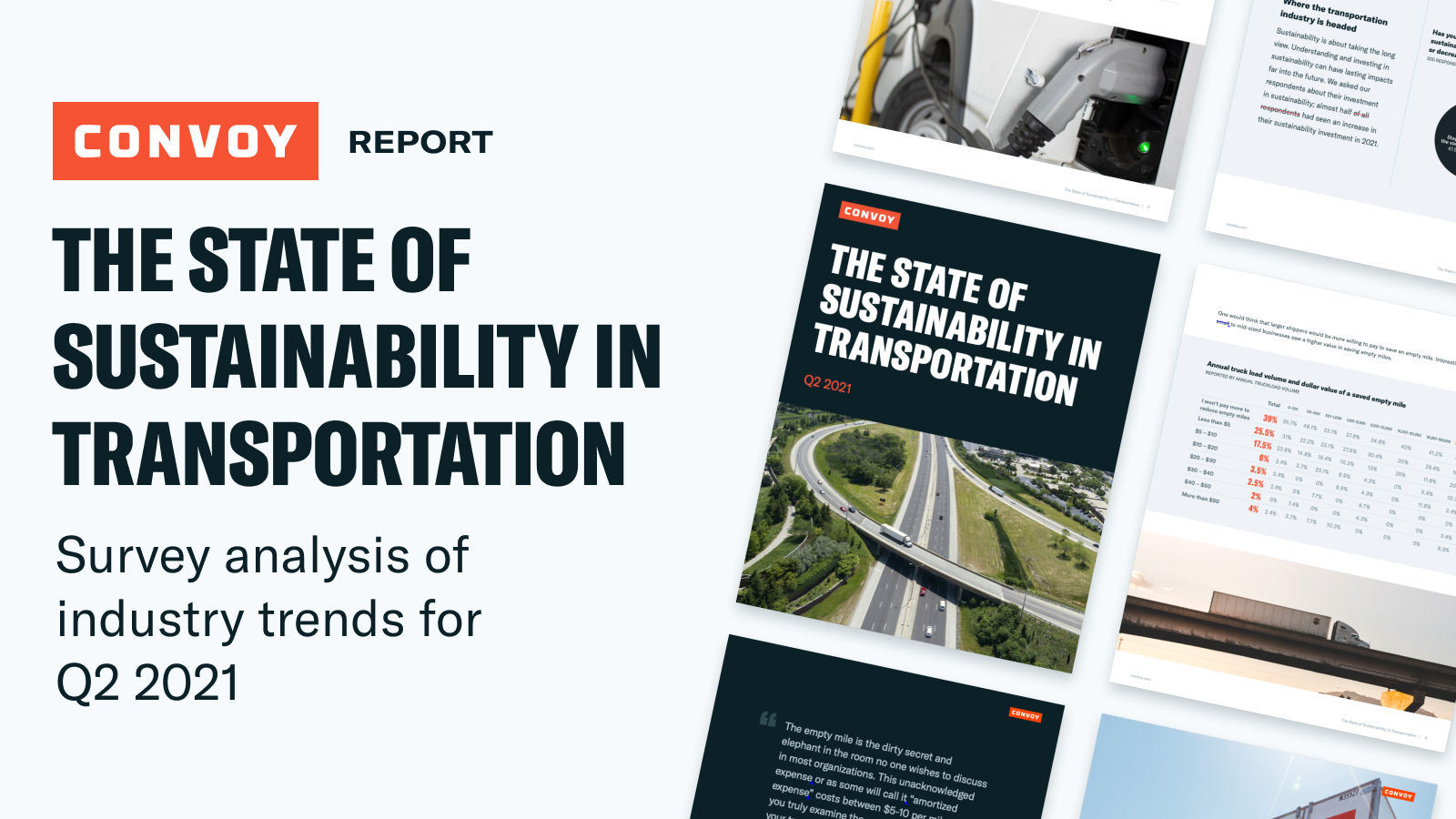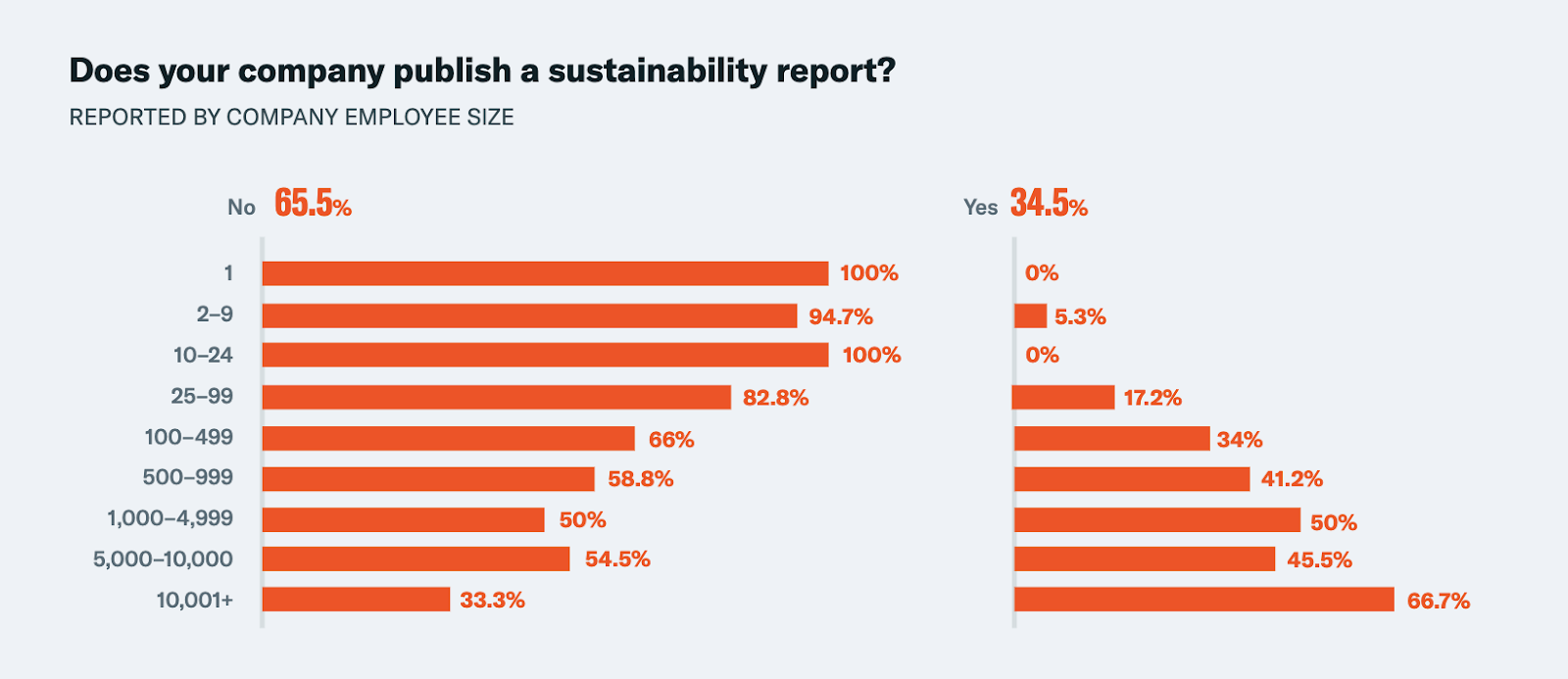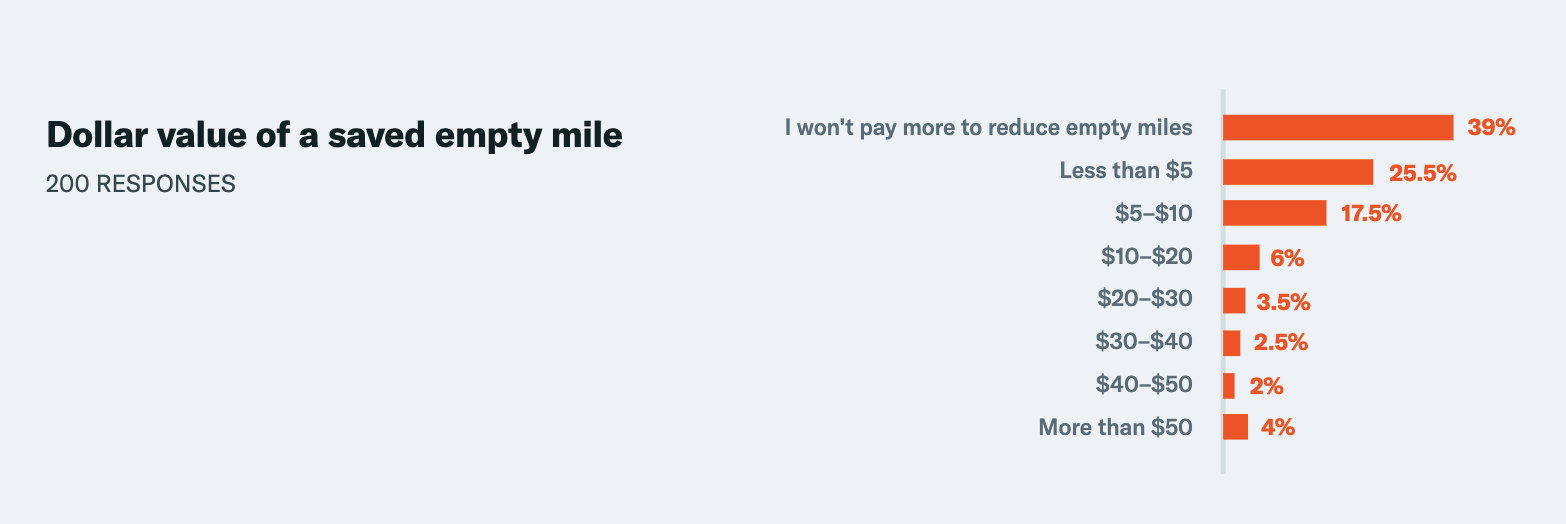The State of Sustainability in Transportation: Supply chains are the secret to sustainability success
Sustainability • Published on June 30, 2021
Convoy’s mission to build the most efficient digital freight network is rooted in our desire to eliminate waste in the supply chain. We enable our transportation industry partners to increase their supply chain efficiency through our optimized, connected network of carriers. Our business is inherently tied to the sustainability of the supply chain, and we are focused on improving both the environmental impact and social responsibility of our network. This State of Sustainability in Transportation Report outlines the priorities, management, and future outlook of sustainability in the transportation industry. We believe our findings and analysis will enable our partners to improve their understanding of sustainability and to engage with others along the journey.

To build this report we gathered insights from over 200 companies to find out how they are approaching sustainability. Companies such as Honda, Zound Industries, Valken Incorporated, and Haworth face a multitude of sustainability risks and opportunities in their supply chains. This report will highlight the viewpoints of these companies, along with others, about how they and their transportations departments are structuring their approach to supply chain sustainability.

THE VAST MAJORITY OF COMPANIES UNDERSTAND THAT IMPROVING SUSTAINABILITY IN THE SUPPLY CHAIN IS A VITAL TASK.
More than 85% of the companies we surveyed said that sustainability was important or very important to their business. There was, however, less cohesion around how to define and manage sustainability. We will outline and compare the different approaches to managing sustainability risk and offer insights into how best to get started or continue progressing.

SOLVING THE PROBLEM OF EMPTY MILES
One of the largest sustainability risks in the transportation industry comes from the emissions associated with transporting products through the value chain. Some emissions are unavoidable, especially as the world continues to rely on fossil fuels to power transportation, but even without the mass adoption of EV or alternative fuel vehicles, there are many strategies to improve transportation efficiencies. One clear strategy that came to light during our investigation was the capability to reduce the number of empty miles driven by carriers. Almost three-quarters of our surveyed companies said that reducing empty miles was important or very important.
“The empty mile is the dirty secret and elephant in the room no one wishes to discuss in most organizations. This unacknowledged expense or as some will call it “amortized expense” costs between $5-10 per mile when you truly examine the cost of ownership of your transportation units. Most companies use averaging formulas to soft peddle or bury this issue by looking at overall miles traveled, and weight or volume of goods transported. That was acceptable in our grandfather’s day however today based on the effort to move to a green future and to reduce greenhouse gasses we need to rethink this antiquated outlook. We need to move forward with a goal of making every mile be a productive mile and optimize load configurations to maximize the overall yield of goods transported.” Michael Lukas, Director of Global Supply Chain at Valken Incorporated
Respondents even shared the dollar value they attribute to reducing empty miles. Interestingly, 39 percent of respondents would not pay more to reduce empty miles. Another 26 percent would pay $5 or less, 36 percent of all respondents would pay more than $5 to save an empty mile, and 4 percent would be willing to pay more than $50.

The Council of Supply Chain Management Professionals defines supply chain sustainability as “the management of environmental and social impacts within and across networks consisting of suppliers, manufacturers, distributors, and customers in line with the UN Sustainable Development Goals”. Using this initial framing, this report will identify the biggest levers that transportation companies can use to have a positive impact and increase their sustainability. For some companies, this includes reductions in greenhouse gas emission through the reduction of empty miles or other efficiency improvements. For others, implementing policies that improve carrier safety and diversity, or increase driver quality of life, will have a lasting impact upon their sustainability performance and reputation.
Download this State of Sustainability in Transportation report here to see how businesses are prioritizing sustainability in their supply chain.



